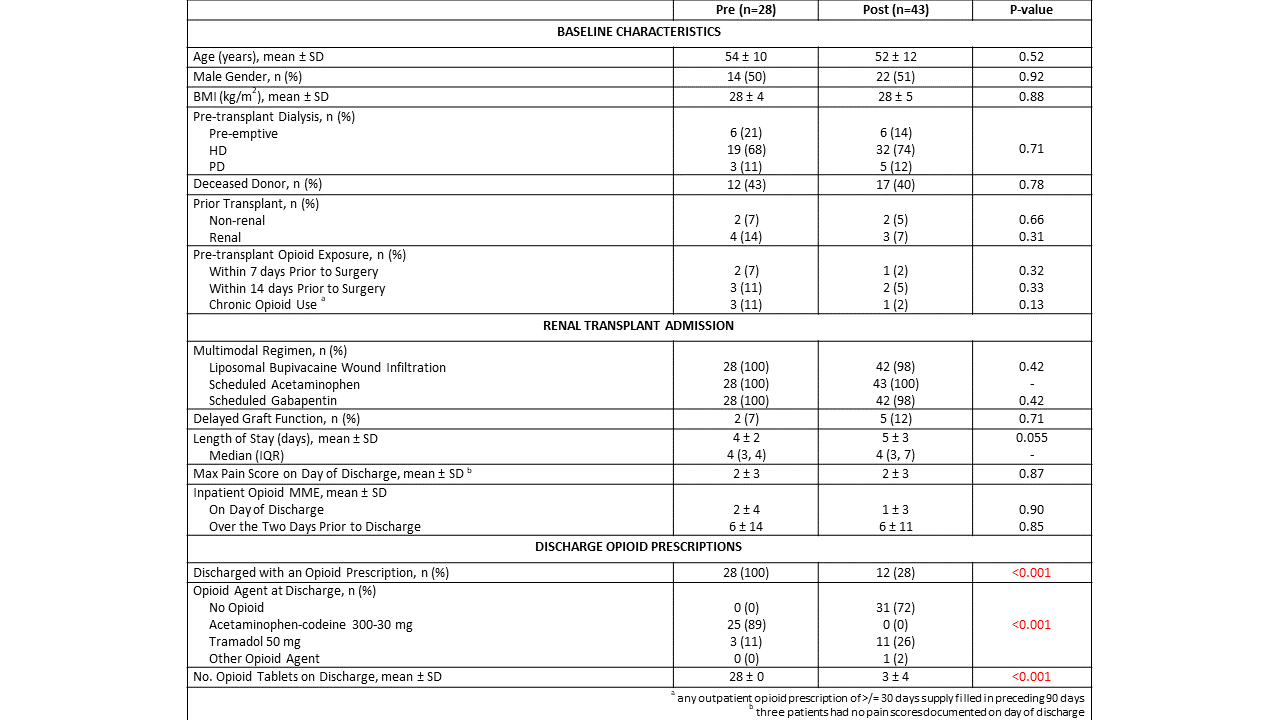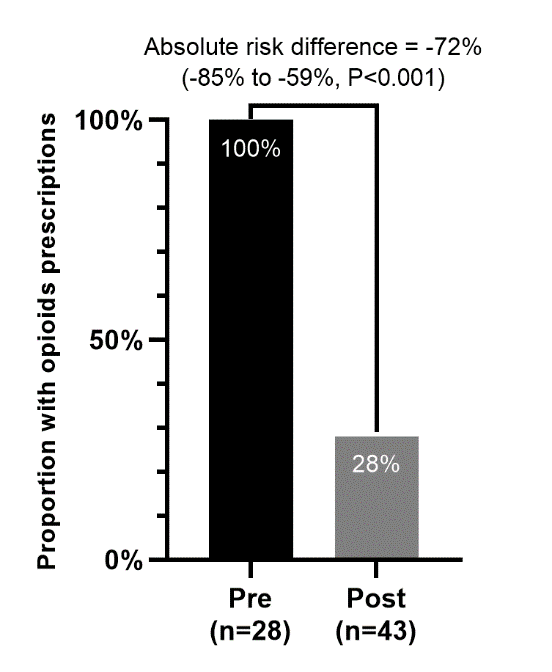Reduction of Discharge Opioid Prescriptions After Kidney Transplantation: A Quality Improvement Project
Houston Methodist Hospital, Houston, TX
Meeting: 2022 American Transplant Congress
Abstract number: 155
Keywords: Kidney, Pain, Surgery
Topic: Clinical Science » Pharmacy » 30 - Non-Organ Specific: Clinical Pharmacy/Transplant Pharmacotherapy
Session Information
Session Name: Non-Organ Specific: Clinical Pharmacy/Transplant Pharmacotherapy
Session Type: Rapid Fire Oral Abstract
Date: Sunday, June 5, 2022
Session Time: 5:30pm-7:00pm
 Presentation Time: 6:30pm-6:40pm
Presentation Time: 6:30pm-6:40pm
Location: Hynes Room 312
*Purpose: Opioid use after kidney transplant has been linked to poorer outcomes, and unused prescriptions can lead to potential misuse. Historical prescribing practice at our center was scheduled acetaminophen (APAP) and gabapentin for 72 hours and 28 tablets of APAP/codeine at discharge. A quality improvement (QI) evaluation of this practice showed that patients had a median of 26 unused opioid tablets at their 2-week follow up appointment and that 35% of patients had not required a single dose following hospital discharge. Based on these findings, we implemented a new postop pain protocol where all patients continued scheduled acetaminophen and gabapentin through POD10; only patients who required an opioid in the 24 hours leading up to discharge received a discharge opioid prescription for 10 tablets of tramadol 50 mg.
*Methods: This was a single center, retrospective, pre- and post- analysis of a QI project to optimize opioid use following kidney transplantation. Only solitary kidney transplants were included in our review.
*Results: We tracked 43 patients following the protocol change (post cohort) and compared to 28 patients transplanted immediately prior to the change (pre cohort). Baseline characteristics were similar between the two groups, and no differences in pre-transplant opioid exposure were observed (Table 1). Overall inpatient opioid utilization remained similar between groups, 4.9 MME/day pre vs 4.5 MME/day post (p=0.78). Discharge opioid prescriptions were significantly reduced from 100% pre to 28% post, P<0.001 (Figure 1). We identified one patient in the post cohort who required an opioid prescription after discharge.
*Conclusions: The current practice of only prescribing opioids at discharge among patients who needed opioids in the 24 hours prior to discharge is effective at reducing outpatient opioid prescriptions after kidney transplant.
To cite this abstract in AMA style:
Rogers AW, Rizk E, Swan JT, Yi SG, Hobeika M, McMillan RR, Krisl JC, Podder H, Gaber AO, Knight RJ. Reduction of Discharge Opioid Prescriptions After Kidney Transplantation: A Quality Improvement Project [abstract]. Am J Transplant. 2022; 22 (suppl 3). https://atcmeetingabstracts.com/abstract/reduction-of-discharge-opioid-prescriptions-after-kidney-transplantation-a-quality-improvement-project/. Accessed February 22, 2026.« Back to 2022 American Transplant Congress


